Interview with Manuel António da Mota, Founder of Mota-Engil
Ana Valado
With a market positioning aligned with the best practices and business conduct based on ethical principles and backed up by a strategic and integrated vision on the future, Mota Engil strives to become the most international, innovative and globally competitive group.
This year, the group celebrates its 75th year in business but the ambition remains the same as in its origins: continue to head down new paths for its own development.
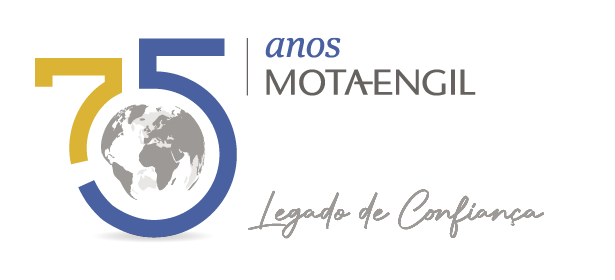
Founded in 1946, the Mota Engil Group is today a multinational with its activities focused on construction and infrastructure management segmented across the areas of Engineering and Construction, Environment and Services, Transport Concessions, Energy and Mining. The leader in Portugal and with a consolidated position in the ranking of the 25 largest European construction groups, Mota Engil is present on 3 continents and in 25 countries divided into three geographic fields – Europe, Africa and Latin America.
That is Mota Engil today after 75 years in business. However, to perceive how the Group got into this leading position, at the national and international level, we need to know a little about its history.
The company traces its origins to Cabinda, when the Portuguese businessman Manuel António da Mota, aged only 33, set off for Angola. Initially seeking opportunities in the wood trade business, with the founding of Mota & Companhia in 1946, he immediately grasped that he had a future in the Construction and Public Works sector and embarking in this area in 1948. Mota & Companhia spent the first three decades of its activities focused only on Angola. “Mota”, as it is known in this country, established its position in this market with the construction of Luanda international airport.
It was with this ambition and the strong connection established and nurtured with this country that Manuel António da Mota affirmed the Mota e Companhia brand in Angola and the only Portuguese company of relevance that has maintained an unbroken presence in Angola through to current times and, as the current president and son, António Mota, states “we will always be in Angola for both the good and the bad times”.
The first experience of company internationalisation was in Portugal, where activities began as from 1976 with its first project on Portuguese territory being the small Lucefecit dam in the Alentejo.
The year of 1977 was determinant to the future history of the company in Portugal when deciding to tender for one of the largest public construction works of the 20th century in Portugal, regularising the lower stretch of the Mondego river, with the Mota & Companhia tender proposal emerging victorious with a technically surprising and differentiated solution. Henceforth, and through a determinant project that was ongoing until 1983, the company increasingly raised its profile in Portugal while always maintaining its position in Angola.
It was at this time that António Mota, current President of the Board of Directors began his professional career on the Mondego project in conjunction with a generation of young engineers who would turn out to be very important pillars to the company’s development over the following decades.
The merger that created a leader
With the expansion of Europe eastwards following the fall of the Berlin Wall and with the arrival of community funds for the member states of the then EEC, the Portuguese market experienced growing dynamism with the affirmation of the company in Portugal taking place with the first steps in consolidating its international expansion following its first incursions into Africa in the late 70s and throughout the 80s, culminating in the following decade with the decision of Manuel António da Mota and António Mota and with the support of his siblings Manuela, Teresa and Paula Mota, already holding senior management positions in the company, to launch activities in Central Europe, in countries such as Poland, Hungary and the Czech Republic after having already launched activities in key African markets, such as Mozambique and Malawi, earlier in that decade.
At this time, Portugal was going through the euphoria pf preparing for the construction of Expo´98 in which Mota & Companhia and Engil played an extremely important role in what became national landmarks, as are the cases of the Lisbon Oceanarium, on various occasions ranked the best in the world, and the Vasco da Gama Bridge, the longest then in Europe (today the second longest) and the first public and private partnership carried out in Portugal.
In the same year as the international exposition, and with António Mota now at the helm of the company, a local company was taken over in Peru, Translei, in conjunction with the Portuguese firm Engil, an experience that would underpin the success in expanding in the Latin America market and would be the forerunner of the largest acquisition that António Mota would later come to make.
The Mota & Companhia and Engil profiles were highly complementary and the companies had a history of collaborating in various consortia in Portugal as well as the acquisition in Peru and hence the decision taken by António Mota would later prove totally certain, managing between 1999 and 2000 to complete the acquisition of Engil to later establish Mota-Engil as a result of the merger, in a process that still today gains recognition as one of the most successful cases of business integration ever undertaken in Portugal and establishing a new leader in the construction market of Portugal.
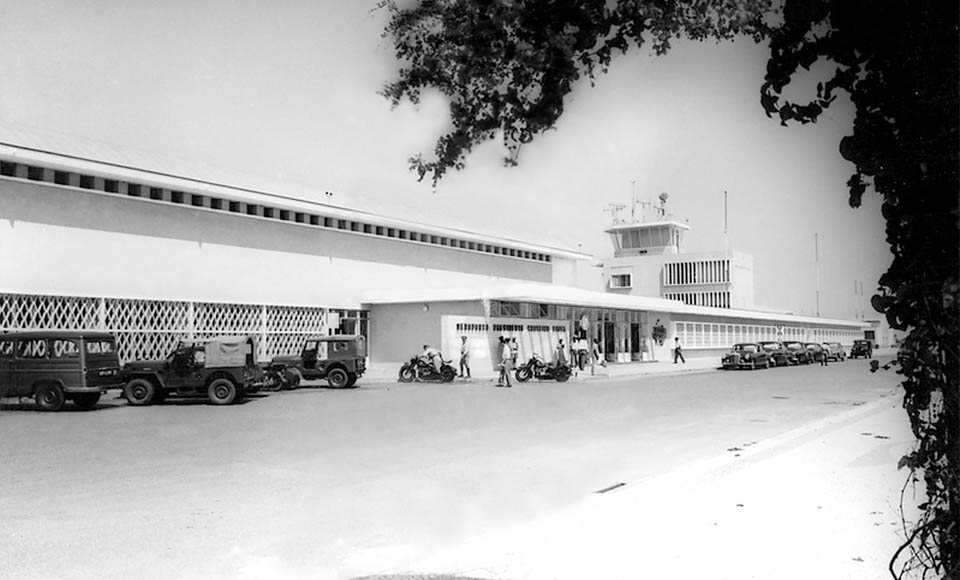
Luanda Airport
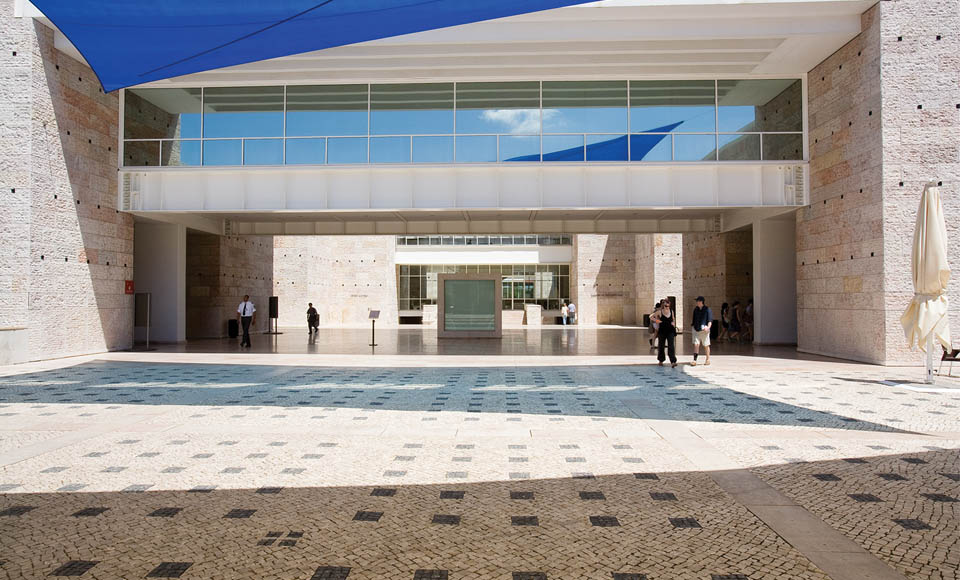
Belém Cultural Center
International affirmation
Following a decade establishing the position of Mota-Engil, the Group embarked on a new cycle, setting up an Executive Commission in 2008, then led by Jorge Coelho, and with the Strategic Plan presented to the market under the title of “Ambition 2013”.
António Mota remained as President of the Board of Directors, setting up an executive management team that helped him draft a new cycle of ambition for the Group, enabling and diversifying the Group portfolios and striving for more robust growth in international markets.
Despite the financial crisis, which took place just months after the presentation of the Strategic Plan and with its epicentre in the United States, Mota-Engil complied with the strategic framework defined under the leadership of António Mota and Jorge Coelho, establishing the synergies that would enable the company to become one of the Top 30 European construction firms in just a few years and where it has since remained as well as the affirmation of its operations in regions across Europe, Africa and Latin America. International markets ended up accounting for over 75% by the end of this cycle when, in 2007, the final year prior to the changes made by the executive team, they represented only 34% of the Group’s turnover.
Crucial to its implementation were the alterations made to the Group management model with the establishing of regional units that enabled the acceleration of the commercial development and the local affirmation in each market as well as embarking on new markets beyond the scope of construction, such as the environment and concessions, with Mexico the leading example and the country that today accounts for the largest Group concession portfolio.
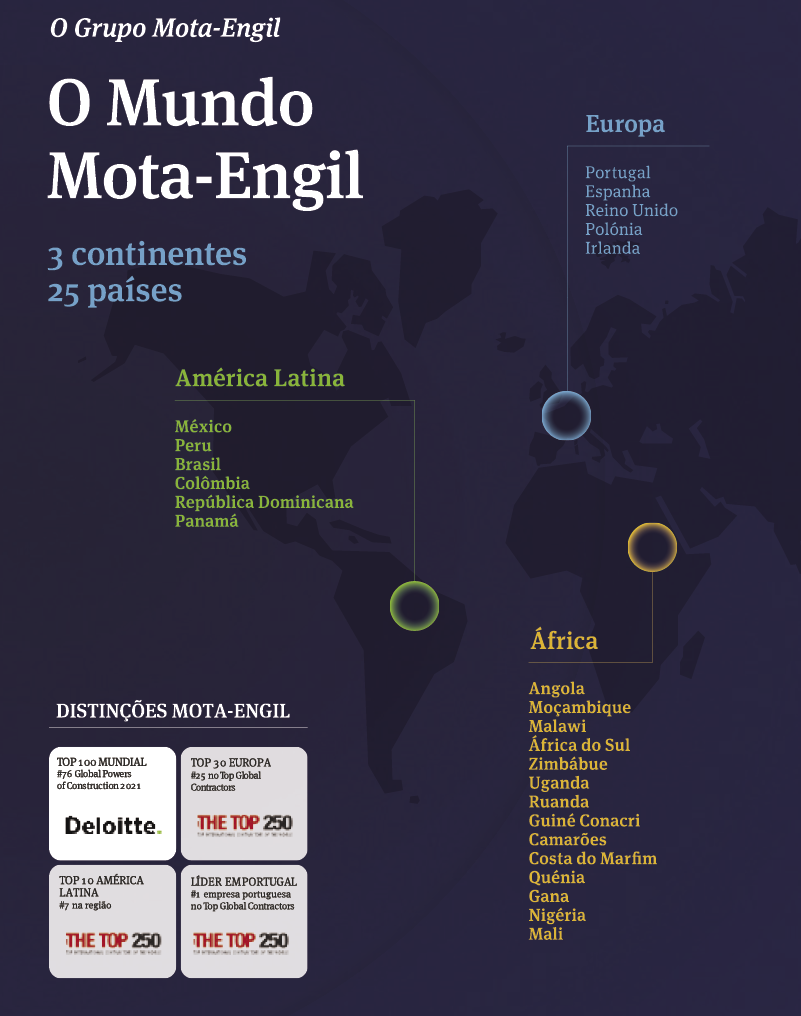
To achieve this rapid but sustainable growth, António Mota repeatedly states that in the company “we are Portuguese in Portugal, Africans in Africa and Latin Americans in Latin America but Mota-Engil throughout the world”, in a message of cohesion and a unique and differentiated culture that he has always made a point of preserving.
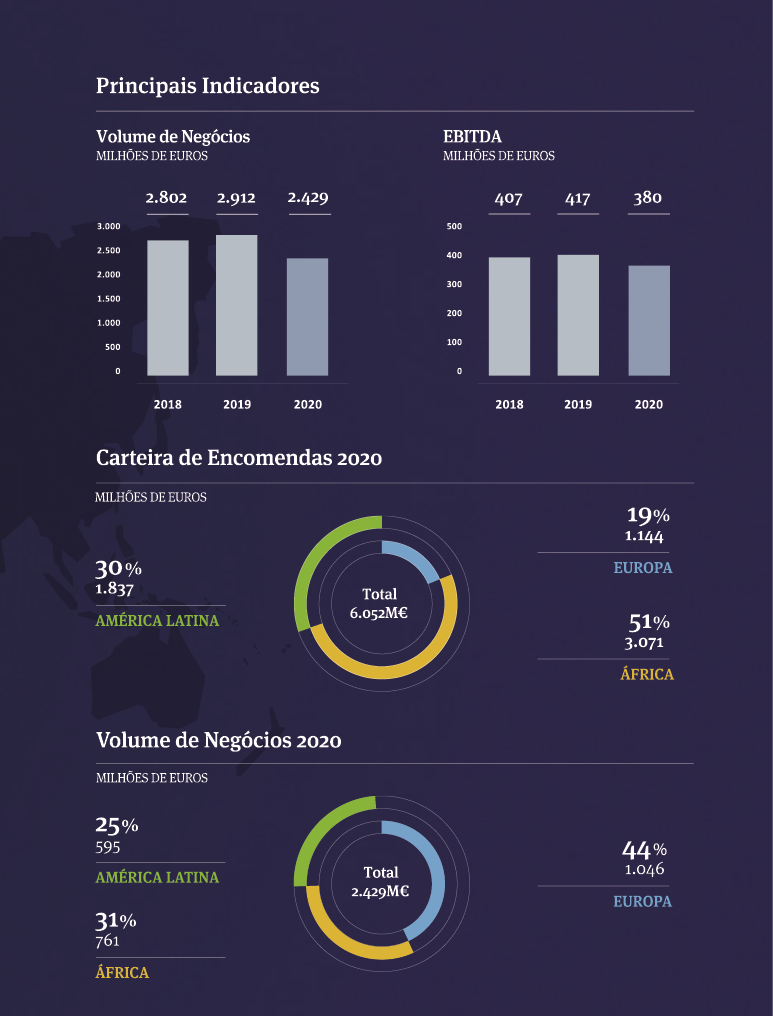
Following the crisis and recession that culminated with the external intervention of the “Troika” in European markets including Portugal, there came the message from António Mota, Group Chairman, in the Annual Business Report in 2011: “Our international exposure, with new clients and new markets strengthen my conviction that we are on the right path to come out of this stronger at the end of the crisis”. In the same document, Jorge Coelho, then Group CEO, mentioned that: “This above all registers the deepening of the scenario for the economic contraction experienced in Portugal in recent years as well as in Europe” but before then quantifying international growth “as a rise of 43% in absolute terms since the implementation of the Strategic Plan, a fact underpins our ability to confirm the strategic will in effect and that shall continue to strengthen these actions for the forthcoming years”.
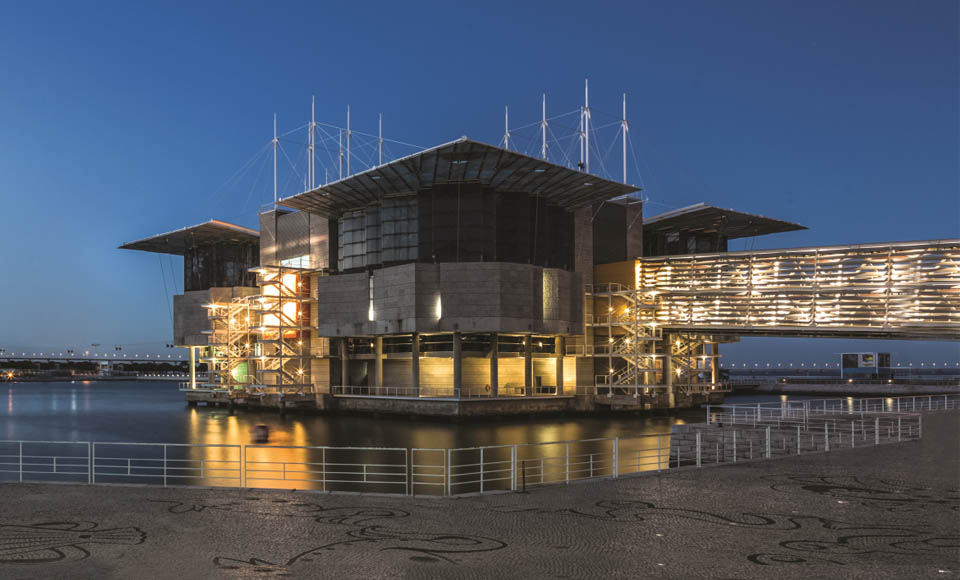
Oceanário
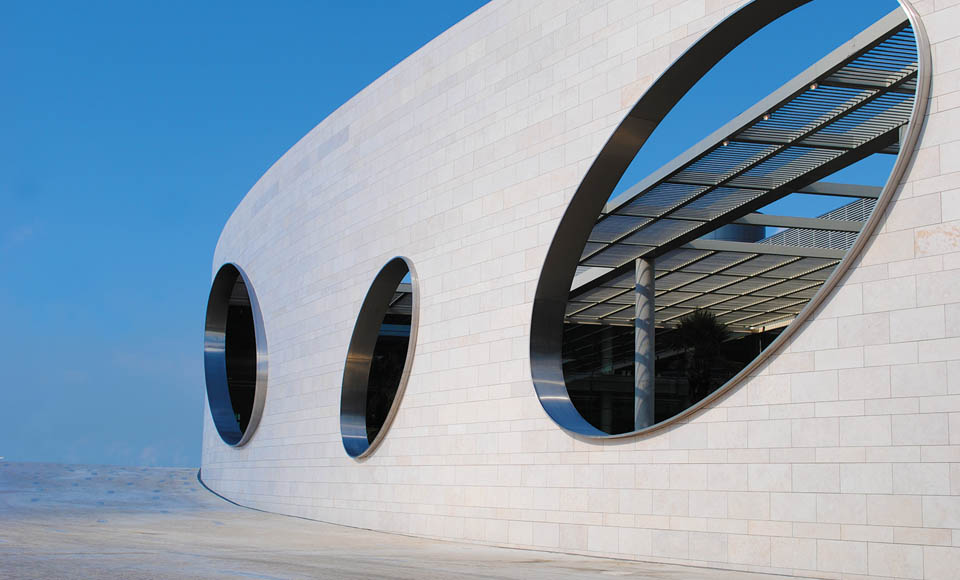
Champalimaud Fundation
Raising the barrier in terms of scale positioned Mota-Engil among the leading European constructors and in the ten largest in Latin America (7th in 2020) as well as being one of the three largest European constructors in Africa, leader in Sub-Saharan Africa and markets including Angola, Mozambique and Malawi.
This same period saw the launching of the Manuel António da Mota Foundation, a family ambition to honour the Group’s founder and develop its corporate social responsibility policies in the countries where Mota-Engil maintains a presence and, today, ten years on from its founding, one of the best examples of projects in Portugal for intervening in social development and support for education and culture, have carried out works in different countries, establishing the Mota-Engil presence alongside the local communities.
In recent years, and with Gonçalo Moura Martins already the Group CEO, Mota-Engil remains on its growth trajectory, broadening its chain of value into the Oil & Gas segment in Brazil, where it has begun platform maintenance services and deepening its capacities in mining, an area the Group has been building since the 1990s (when beginning operations in Peru) and where there has been significant growth in large scale contracts and closing 2020 with around one billion euros of commissioned projects in its portfolio out of its six billion euro total.
In keeping with Gonçalo Moura Martins, the CEO who has been through every business area in the Group, from construction to environment via the concessions, the holding group management draws upon Carlos Mota Santos and Manuel Mota, representative of the third generation of the Mota family and that are an example of the continuity of the commitment of the founding shareholders to the future of the Group.
In 2021, the year Mota-Engil turned 75, there were a series of landmarks in the history of the Group beginning with the signing in January of the largest contract in its history in Nigeria for the Kano-Maradi railway project, achieving in June its portfolio order book record of 7.4 billion euros and now fully implementing the Strategic Partnership and Investment Agreement with one of the world’s largest constructors, China Communications Construction Company (CCCC), a globally scaled partnership that opens up prospects for Mota-Engil to contribute in the future to projects of a (still) greater dimension.
At the moment when commemorating such an important date, Mota-Engil continues to build its future far beyond the horizons of its country of origins and, just as Manuel António da Mota set off from Codeçoso to win new worlds, Mota-Engil shall also continue to tread new paths for its own development.





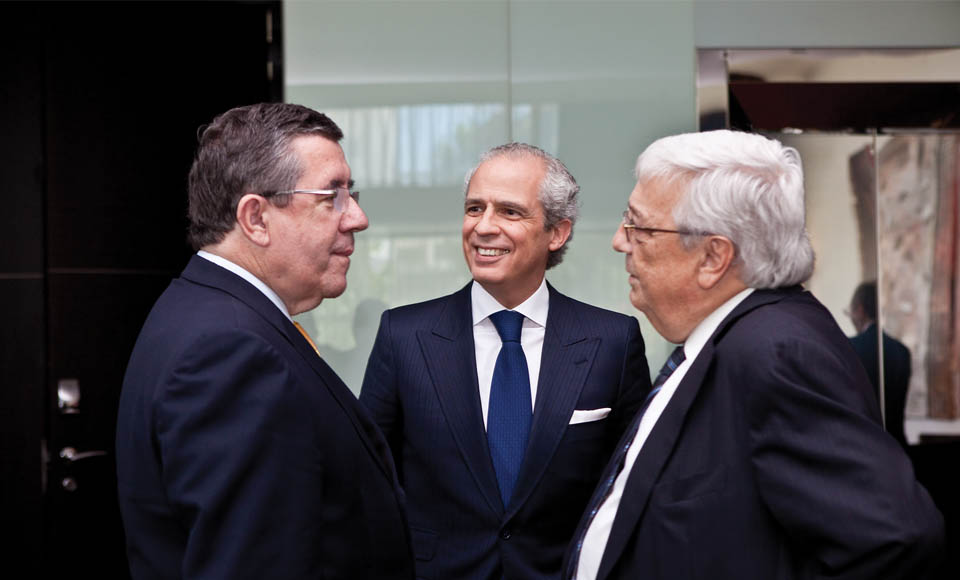 Jorge Coelho, António Mota e Gonçalo Moura Martins
Jorge Coelho, António Mota e Gonçalo Moura Martins

